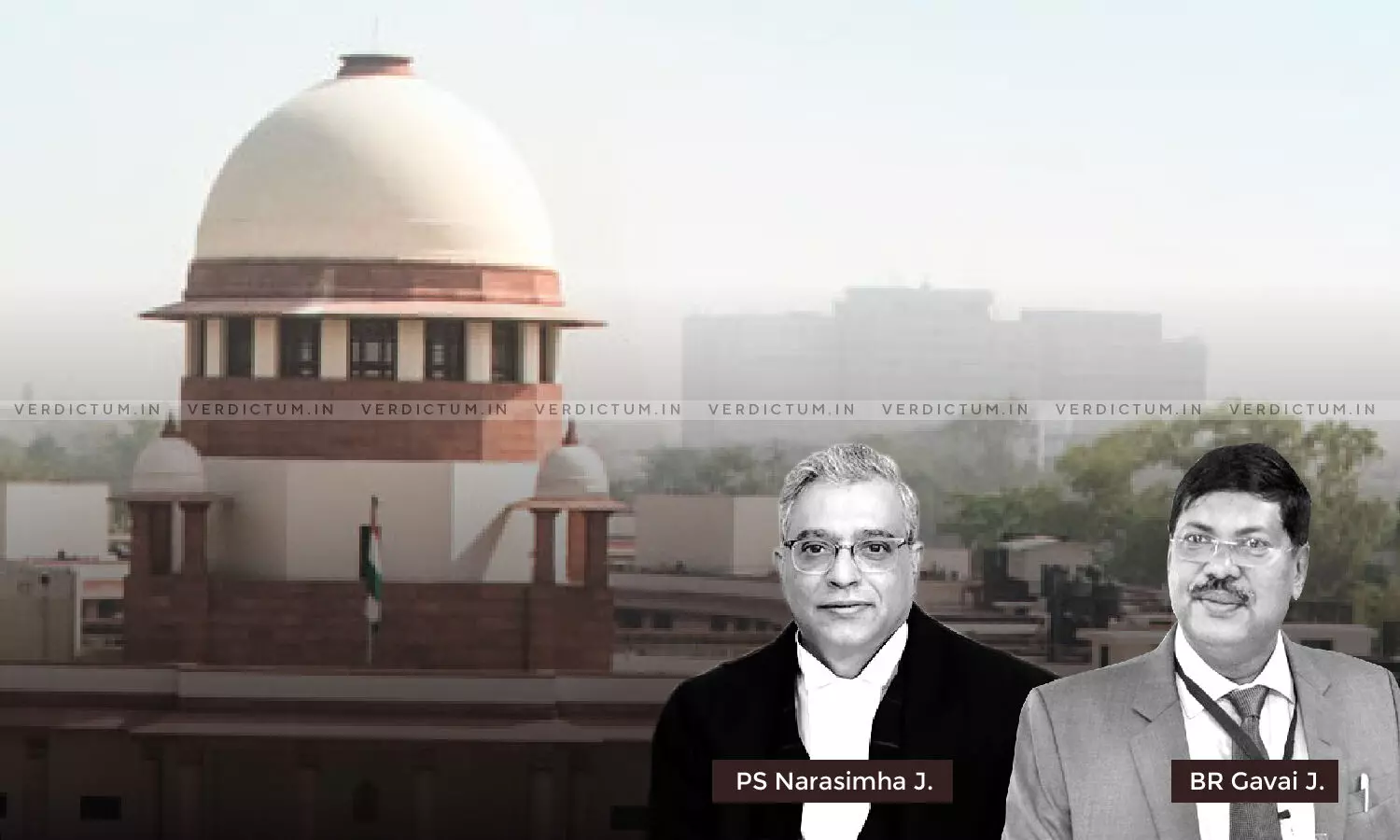
FIR Recorded Under Dubitable Circumstances Cannot Be Considered Dying Declaration: Supreme Court
 |
|The Supreme Court has observed that an FIR that has been recorded under dubitable circumstances cannot be considered as a dying declaration.
The Bench of Justice BR Gavai and Justice PS Narasimha made this observation while acquitting two murder accused.
It was the case of the prosecution that the three accused had fired gunshots on the deceased and one private practitioner. Later on the deceased succumbed to his injuries. After the investigation and the arrest of the accused, the prosecution filed the charge-sheet against the accused, and the Sessions Judge framed charges under Sections 302 and 307, each read with Section 34, of the Indian Penal Code.
The FIR was treated as the Deceased's first dying declaration in which the Deceased stated that he was a witness in a case against one of the accused. The Trial Court further discarded the contradictions that surfaced by the improvements in the statements of eye-witnesses.
The Trial Court finally convicted all the accused under Sections 302 and 307, each read with Section 34 of the IPC.
The High Court affirmed the conviction and the sentences passed by the Trial Court without any variation. Meanwhile one of the accused had passed away.
Aggrieved, accused persons approached the Apex Court.
Senior Advocate R Basant, assisted by Advocate Likhi Chand Bonsle and Advocate Rahat Bansal, appeared for the accused-appellants whereas Advocate on record Sanjay Kumar Tyagi, appeared on behalf of the State of Uttar Pradesh assisted by Advocate Prabhat Kumar Rai and Advocate Ajay Kumar Pandey.
At the outset, the Court noted glaring inconsistencies in the evidence put forth by the prosecution
"First, there is doubt as to whether the Deceased authored the FIR and handed it over to the police, as stated in the cross-examination of PW-1, or it was orally dictated by the Deceased and scribed by PW-4, as stated by PW-6 in his chief- examination.", the Court observed.
The Court further observed "…contradictions in the evidence of PW-1 and significant improvements in the testimony, cast doubts about his presence at the alleged place of occurrence of the crime. At least one thing is clear, he has not witnessed the accused firing at the Deceased."
The Court also pointed out a great amount of uncertainty about the place of occurrence of the crime.
"Inspector Chob Singh (PW-7) who was cross-examined about the place of occurrence has stated that he has not found blood spots on the chair or the floor around the chair. This contrasts with the testimony of PW-1, who, in his cross-examination, stated that whenthe Deceased was lying on the bullock cart in a cot, blood was oozing out from him, which is relatable to the injuries sustained at the place of occurrence.", the Court observed.
The Court expressed that it was unnatural that not even single drop of blood could be traced or recovered from the chair or the floor where the Deceased was sitting. The Court also observed that the prosecution had failed to make material recoveries from the place of the occurrence of the crime.
Next the Court observed material inconsistencies in the two dying declaration of the deceased.
"In our opinion, the second dying declaration comprising far too many additions and improvements, was correctly rejected by the Trial and the High Court. The first declaration was recorded in the police station, right before the Deceased left for the hospital in a critical condition, without any certification of whether the Deceased was medically fit to make a dying declaration.", the Court noted.
The Court expressed that the prosecution had failed to prove the case beyond a reasonable doubt, and that the accused were entitled to be given the benefit of doubt. Accordingly, the Court acquitted the accused from all charges.
Cause Title- Munuwa @ satish etc. v. The State of Uttar Pradesh
Click here to read/download the Judgment